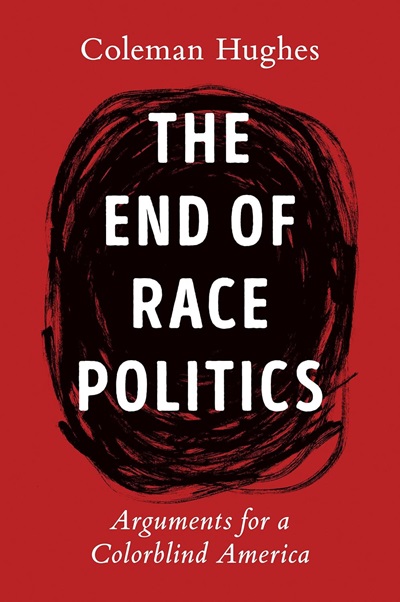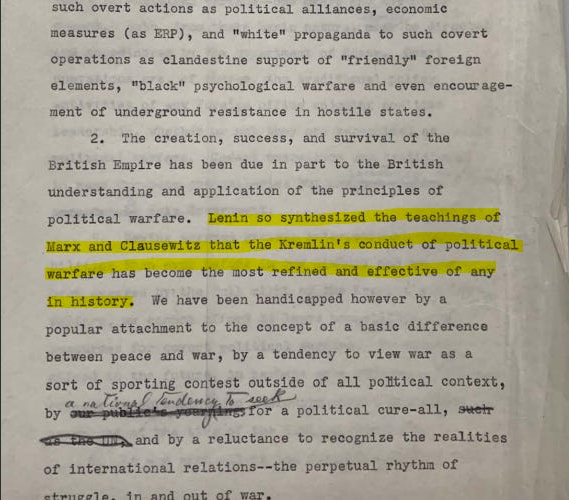Chris Bray linked to this fascinating — and depressing — report on the German government’s plans to crack down on “extreme” “right-wing” groups and individuals … to “protect our democracy”, of course:
After Germany’s defeat in 1945, Walter Ulbricht returned from exile in Moscow to become one of the founding politicians of the DDR. The new state, he said, “must look democratic, but we must have everything under control“. It has been 80 years since Ulbricht spoke those words, and while the DDR has faded away, their spirit lives on in the political establishment of the Federal Republic. Our present rulers are doing everything in their power to re-establish pseudodemocracy in the West. This is not a mere eugyppius exaggeration, and it is not sensationalism for internet clicks. It is what our politicians themselves are saying.
As in the DDR, we hear that these antidemocratic measures are necessary to protect us from the threat posed by the right. The truth is much more mundane: Germany has one of the oldest party systems in Europe. As has already happened in many other countries, this post-war establishment is coming apart. While our neighbours have endured the rise of new parties and political structures with some measure of equanimity, our cartel politicians in Germany are terrified of losing power, and they will use all the tools at their disposal to keep hold of it – up to and including the suspension of democracy itself.
Alternative für Deutschland find themselves in the targets of our nominally democratic priesthood not because they are extremely right-wing, or racist, or xenophobic or anything like that. Politically, they’re hardly different from the CDU of the 1980s. Their real crime is having achieved enough strength to threaten the establishment ecosystem. The stronger AfD become, the harder it will prove for the reigning parties to form anti-AfD coalitions. [my emphasis, NR] Some of these parties, like the FDP, seem destined to disappear entirely; others, like the SPD, fear a future of permanent irrelevance. The once-dominant centre-right CDU, meanwhile, will find itself unable to form workable governments with partners on the left, and thus without any excuse not to enact the mild nationalism that a clear majority of voters demand, and that is so deeply out of fashion with our globalist rulers.
This is the purpose of the unceasing, astroturfed agitation “against the right” that the establishment have visited upon Germany for over a month now. The protests have not worked to destroy support for the AfD, so now they are being repurposed as a license to take enforcement action against “right-wing extremism”. Interior Minister Nancy Faeser (SPD) said at a press conference on Tuesday that the protests have given her both “encouragement” and a “mandate” to proceed against the right. “This really is a very positive signal,” she said, “because it is about defending our open society against its enemies. As a democracy on the defence, we must stand up to the extremists.”
Faeser spoke these words in the course of announcing a range of measures via which she hopes to combat “right-wing extremism”. These are also outlined in a 16-page Interior Ministry paper on “Resolutely Combating Right-Wing Extremism: Using the Instruments of Defensive Democracy“. Here, it is important to note that Faeser is among the most unpopular politicians in all of Germany. Last year she suffered a humiliating defeat in her effort to become Minister President of Hessen, and 60% of Germans view her unfavourably. That is powerful motivation to bring German democracy back under control. Her “package of measures” to combat “the right” are some of the most openly antidemocratic, dictatorial policies I have ever seen any Western politician articulate. In other nations these kinds of things are surely said behind closed doors, but in Germany they are printed in all the major papers. You can only imagine what these people contemplate in secret. [again, my emphasis. We already know that at least one Canadian government minister wanted to send the tanks in against the Freedom Convoy in 2022 – NR]
Faeser and her fellow political enforcers have such a wide-ranging, fluid understanding of what “right-wing extremism” constitutes, that the label can be deployed against basically anybody. The Interior Ministry paper claims that “The aim of right-wing extremists is to abolish liberal democracy and reshape our society according to their nationalist, racist and anti-pluralist ideas”. You might think, “well, that’s okay then, I’m a pluralist liberal,” but that would be as naive as thinking you were safe from the Stasi because you were not a fascist. The same paper proceeds to complain that “the extremist … New Right … aims to discuss topics and use terms that give their inhuman plans a harmless appearance”. Translated from democratese: “There are people out there who are not saying anything illegal but they have made themselves inconvenient anyway”. The president of the Federal Office for the Protection of the Constitution, Thomas Haldenwang, likewise spoke at the press conference of the tendency of “right-wing extremists” to “dress up and camouflage themselves”. They must “be unmasked and exposed … [as] enemies of our democracy”.
This construction of “right-wing extremism” as a cryptic, hidden quality that requires unveiling by the political police is unimaginably dangerous. You are never safe from a regime that thinks this way, because what you actually say, do or even believe doesn’t matter. You are guilty of “right-wing extremism” if Haldenwang’s office thinks you are. This flexibility is important, because the establishment are not actually interested in driving out zombie National Socialists. They want to neuter the political opposition, whatever its form or programme.









